In Japanese, mou もう means various things. It can mean something "already" happened; that "by now" it's somehow; we'll do it "just" a little more; we're "about" to do it "soon;" we'll do something "again;" or never "anymore;" or there's "another" of something; or it can interjection used to express frustration when you've had enough; or even to express confidence on how things are going.
"Further"
The word mou もう can mean "further" when it's accompanied by numbers.
"One More Time!"
Often, this happens in the sense of doing something "one more time."
- mou ikkai
もう一回
One time further.
One more time.- Tends to be used with things that are normal to do multiple times.
- We've done this ten times, but let's do it just one more time.
- mou ichido
もう一度
One more time. Once more.- Tends to be used with things which are only done once.
- Let's check this again.
Often, the phrases above are interchangeable.
- mou ippatsu
もう一発
One more shot. One more hit.- e.g. when training to play in the inter high school volleyball tournament, or fighting against a ninja using martial art karate punches, or battling huge space monsters with a plasma cannon.
"Again"
The word mou is often translated as "again" instead, because "one more time" is too long.
- mou ikkai yatte-miru
もう一回やってみる
Let's try doing it one more time.
Let's try doing it again. - mou ichido fukkatsu suru
もう一度復活する
To revive one more time.
To revive again. - mou ichido onegai shimasu
もう一度お願いします
[I] ask [you for] one more time.
One more time, please.
Please do it again. - mou ichido itte kudasai
もう一度言ってください
Say [it] one more time, please.
Say [it] again, please.
"Another"
The word mou もう can also mean "another." Even when it means "one more time," because "one more time" is just "another" time.
- sara ni mou ippatsu
さらにもう一発
On top of that, one hit further.
On top of that, one more hit.
Plus another hit. - mou hitori iru!
もう一人いる!
One person further!
One person more!
There's another one!- hitori
一人
One person. (one more person, in this case.)
- hitori
もう一つ
The phrase mou hitotsu もう一つ means literally "one more," but there's a certain use of this phrase that needs to be noted.
- mou hitotsu youji ga aru
もう一つ用事がある
There's "one more" affair [that I need to take care of.]- This is the literal meaning.
The word hitotsu 一つ can mean "one" thing someone has to say. Like you had bullets points: first, this, second, that, third, that more. Except in this case it's used more to give someone advice, or warn them about something, or even give conditions to a certain spoken deal.
- hitotsu itte ii?
一つ言っていい?
Saying one [thing] is okay?- May I say one thing?
- Can I tell you one thing?
So mou hitotsu もう一つ means "one more thing." It's used when it sounds like the speaker already said everything he had to say, but, nope, there's "one more thing" he has to tell to the listener.
- mou hitotsu, chanto okaasan no iu koto wo kiite
もう一つ、ちゃんとお母さんの言うことを聞いて
One more thing: properly listen to what [your] mother says.- Listen to your mom!
Anime: Jackie Chan Adventures (Episode 4)
- Pic unrelated.
- Jackie Chan is from Hong Kong, by the way, not Japan.
- He's not Jackie-chan. He's Jackie Chan. That's his name.
Variants of this phrase include:
- ato mou hitotsu
あともう一つ
One more thing remains. - sore to mou hitotsu
それともう一つ
That and one more thing. - sore ni mou hitotsu
それにもう一つ
That and one more thing.- ni に particle
Sometimes means "and" when you're forming a set of things by adding one thing to another.
- ni に particle
- soshite mou hitotsu
そしてもう一つ
And then one more thing.
Comparative Adjectives
The word mou もう can combine with an adjective to form a comparative adjective, which sometimes translates to English as the suffix "-er." For example:
- omoi
重い
Heavy. - mou ichi-kiro omoi
もう1キロ重い
One kilogram more heavy.
One kilogram heavier.
This works not only with comparatives that express increases but also with comparatives that express decreases, which sounds a bit weird at first, compared to the other usage of mou. Observe:
- mou go-senchi mijikakattara...
もう5センチ短かったら・・・
If [it] were five centimeters more short...
If [it] were five centimeters shorter...
- Even though we're talking about shorter, rather than longer, we can still use mou here.
- Context: Akaza Akari 赤座あかり, a 13 years old girl, regrets not being 14 years old like her friends, because they started middle school one year before her, so she spent a whole year without going to school with them.
- aaa...
あーあ・・・
Aah... (sigh.) - Akari ga {mou ichinen hayaku} umaretetara dougakunen datta noni
あかりがもう一年早く生まれてたら同学生だったのに
If Akari had been born {one year sooner} [we] would have been in the same year of school.
- Akari uses her own name as first person pronoun.
- umaretetara - contraction of umarete-itara 生まれていたら.
- Akaza Akari (juu-san)
赤座あかり(13)
Akaza Akari (thirteen).- In Japanese, a number inside parentheses after someone's name typically indicates their age.
- The family name (Akaza) comes before the given name (Akari), opposite to the name ordering in America, for example.
In the example above, mou ichinen hayaku means, literally, "one year more soon," in other words, "one year sooner."
"Just One More"
The word mou もう can also mean "just one more." That is, it's also used to refer to the amount remaining in order to achieve something, or until something happens. For example:
- ato mou ippo!!
あともう一歩!!
After [this], one step more!!- And then we'll reach there!!
- This can be a literal "step," as in walking distance, but it often means a figurative step. You're "almost there" and you'd need just one more thing to get there.
- Often used in frustration in anime:
- ato mou ippo nanoni!
あともう一歩なのに!
Even though [I just need] one more step after [this]!
(I can't reach there! Why!!!! Oh, Kamisama, why!!!)
- ato mou chotto dake
あともうちょっとだけ
After [this], just a little bit more.- Let me play this game for just a little bit more!
"Already"
When mou もう is in a sentence in the past, it becomes an adverb meaning something has "already" happened, or something is already in a given state.
- mou hajimatta
もう始まった
It started already. - mou owatta
もう終わった
It ended already. - kare wa mou kaetta
彼はもう帰った
He already went home.
"Now"
It's important to note that the way mou もう is used in Japanese is slightly different from how "already" is used in English.
When "already" is used in English, it's to refer to something that was expected to be in the process of becoming something else, and that process "already" started or concluded.
- It was cooking.
- It's already done cooking.
- It was in the freezer.
- It already froze.
- I though it was going to rain.
- It's already raining.
When mou もう is used in Japanese, it doesn't refer to a process, but the way things ended up being right "now." It looks similar because something that finished freezing ends up being frozen right now. For example:
- yameru
やめる
To stop [doing something].- tomeru
止める
To stop [moving].
- tomeru
- mou yameta
もうやめた
I stopped already.
By now I'm not doing that anymore. - mou yamete
もうやめて
Stop already.
By now, you've done enough, haven't you? You should stop.
However, sometimes you'll encounter instances where "already" would have a different meaning in English than mou has in Japanese. In such cases, the English adverb "now" is closer to the literal meaning of mou, although it will sound off in English. For example:
- dame da
駄目だ
It's no good.- It doesn't work.
- I mean, I tried, but, nope, doesn't work. Must be broken or something.
- mou dame da
もう駄目だIt's "already" no good.It's no good "already."- Using "already" in English sounds like we were expecting it to become "no good," which isn't the case.
- "By now it's no good."
- Would be a more literal translation, but it sounds weird
- Context: a hero shows up out of nowhere to save the day. Totally unexpected.
- mou daijoubu da
shounen!!
もう大丈夫だ 少年!!
It's alright now, boy!! - watashi ga kita
私が来た!
I came! (literally.)- I'm here!
"Already Enough"
The word can also be used to say something is enough in various ways.
- mou juubun
もう充分
It's enough now.
It's already enough.
In particular, mou ii もういい and mou __-te-ii もう〇〇ていい are often used in this case.
- mou nanimo iwanakute ii
もう何も言わなくていい
Now not saying anything is okay.
Already not saying anything is okay.
[You] don't have to say anything anymore.
[You] have already said enough.
- cho'... aneuee
ちょっ・・・姉上ェ
Wai... sister.- chotto
ちょっと
[Wait] a bit.
- chotto
- nande soko made...
なんでそこまで・・・
Why [do you go so far].- Why would you do so much?
- mou ii janai ka, nee!!
もういいじゃないか ねェ!!
It's [enough] already, isn't it? Right?!! - aneue!!
姉上!!
Sister!!
"Already So Soon?"
In some cases, mou もう has the nuance of being surprised something has already happened so soon.
- mou maketa?!
もう負けた?!
Already lost?! (a fight.)- Wow, you're weak!
- mou shukudai yatta?
もう宿題やった?
Already did the homework?- Wow, you're a genius!
"Too Late"
In some cases, mou もう has the nuance of it being "too late" to do something already. It's futile, hopeless, there's nothing you can do.
- kare wa mou shinda
彼はもう死んだ
About he: by now, died.
He died already. - mou te-okure da
もう手遅れだ
It's already too late.- te 手
Hand. (literally.)
Move. (in chess, etc.) - te wo utsu 手を打つ
To deal a hand. To make a strategic move. - okure 遅れ
Delay. Lateness. - okureru 遅れる
To be late for something. - It's too late to deal any strategic move.
- There's nothing we can do anymore.
- te 手
- omae wa
mou shinderu
.........
おまえはもう死んでる・・・・・・・・・
You're already dead.- It's over.
- shinde-iru
死んでいる
To be dead.
- nanii~~!?
なにィ~~!?
Whatttt!?
"Anymore"
When mou もう is in a negative sentence, it can add an "anymore" to the English translation. For example:
- mou nanimo dekinai
もう何も出来ない
By now, can't do anything.- It's already hopeless.
- Nothing can be done anymore.
- mou shimasen kara yurushite kudasai
もうしませんから許してください
[I] won't do [it] anymore, so please forgive me.- yurusu
許す
To allow. To permit.
To forgive.
- yurusu
- mou kodomo dewanai
もう子供ではない
By now: not a child.- You're not a child anymore.
- sensou wa mou gomen da
戦争はもうごめんだ
About war: by now, excuse [me from doing it].- I don't want war anymore.
- I'm fed up about with war already.
- gomen
ごめん
Sorry.
Not wanting (to do something). Being fed up with something.
- mou kore ijou taberarenai
もうこれ以上食べられない
Already not able to eat more than this.- I can't eat any more than this!
- Context: three girls have been summoned into a world called Cephiro.
- {"isekai" kara
kono "Sefiiro" ni
"shoukan" sareta} mono wa
mizukara no ishi dewa
mou moto no sekai ewa
modoren
『異世界』からこの『セフィーロ』に『召喚』された者は自らの意思ではもう元の世界へは戻れん
Someone [who] {has been "summoned" from "another world" into this "Cephiro"} can't any longer by [their] own will return to [their] former world.- In other words: after being summoned, they can no longer return, at least not without the help of someone else.
- Context: Shichijou Aria 七条アリア explains to Amakusa Shino 天草シノ the woes of having big oppai.
- tatoeba Shino-chan no
suki-na hito ga kyonyuu-zuki no
baai
たとえばシノちゃんの好きな人が巨乳好きの場合
For example, if the person you like likes big breasts. - doryoku suru yochi ga aru-n-desho?
努力する余地があるんでしょ?
There's still room [for you] to do something about it, right?
- Just grow bigger breasts!
- demo watashi no suki-na hito ga hin'nyuu-zuki na baai
でも私の好きな人が貧乳好きな場合
But if the person I like likes small breasts. - mou dou nimo naranai yo
もうどうにもならないよ
Already won't become anyhow.- Won't take any shape. Won't happen.
- It's already hopeless. Futile.
- There's nothing I can do about it.
これでもう
Sometimes, mou もう appears together with kore de これで that means "with this." For example:
- kore de mou owari da!
これでもう終わりだ!
With this, now it's the end!- With this attack, it's over! GIVE UP!!!
もう二度と会えない
The phrase mou nido-to aenai もう二度と会えない means "to never be able to meet again." In order to understand this, we'll have to work our way up through similar, but simpler, phrases:
- ichido au
一度会う
To meet one time. - mou ichido au
もう一度会う
To meet once again. - mou ichido au tame ni
もう一度会うために
For the purpose [that is] to meet once again.
In order to meet once again.- tame ため
"Purpose" is being qualified by a relative clause here.
- tame ため
- mou ichido aeru
もう一度会える
To be able to meet once again.- I can meet her once again!
- mou ichido aenai
もう一度会えない
To not be able to meet once again.- To not be able to meet one time more.
- To not be able to meet anymore.
- nido-to aenai
二度と会えない
To not be able to meet two times.- To not be able to meet a second time.
- To not be able to meet anymore.
- To not be able to meet ever again.
- mou nido-to aenai
もう二度と会えない
By now, to not be able to meet ever again.- From now on, we'll never be able meet.
- We'll never be able to meet anymore.
- We'll never be able to meet again.
"Soon"
Sometimes, mou もう can mean "soon" instead of "already." Which sounds honestly confusing, as "already" means something happened in the past, but "soon" means it will happen in the future.
Fortunately, the distinction is as obvious as the difference between "soon" and "already" mentioned above: when the verb of the sentence is past form, mou means "already," when it's non-past, mou means "soon."
For example:
- mou owatta
もう終わった
Already ended. - mou owaru
もう終わる
Will end soon.
Reminder: Japanese verbs have two basic times: past and non-past. The non-past isn't limited to present, "ends soon," it can also be future: "will end soon."
"Almost"
Sometimes, mou もう is translated as "almost" or "about" instead of "soon." It doesn't change the meaning of the phrase. For example:
- musuko wa mou sotsugyou suru
息子はもう卒業する
About [my] son: soon, [he'll] graduate.- My son will graduate soon.
- My son is almost graduating.
- My son is about to graduate.
"Already Soon"
There are a number of adverbs that mean "soon" or "soon enough" or something along those lines that can be combined with mou もう.
In such cases, mou doesn't mean "soon," since the other adverb already means "soon" by itself. Instead, mou has the "already" meaning.
The speaker is realizing "now" "soon" something will happen. This ends up intensifying the adverb, so it sounds like "very soon" instead of "soon."
もうすぐ
For example, sugu すぐ means "immediately" by itself. When combined with mou, the phrase mou sugu もうすぐ means something will happen "very soon," or "shortly."
- sugu sotsugyou suru
すぐ卒業する
To graduate immediately.- Will graduate ASAP.
- mou sugu sotsugyou suru
もうすぐ卒業する
To graduate very soon.
To graduate shortly.- Our graduation is right around the corner.
もうじき
The phrase mou jiki もうじき is practically synonymous with mou sugu もうすぐ. If there's a difference, it's that mou jiki isn't as urgent as mou sugu, and that mou sugu is more common than mou jiki. [「もうすぐ」と「もうじき」は 意味合いが違うのでしょうか? - detail.chiebukuro.yahoo.co.jp, accessed 2019-03-18]
- jiki ni sotsugyou suru
じきに卒業する
To graduate soon. - mou jiki sotsugyou suru
もうじき卒業する
To graduate very soon.
もうそろそろ
The phrase mou sorosoro もうそろそろ has a similar meaning. A slight difference is that sorosoro そろそろ a mimetic word and its meaning is closer to "about to."
- sorosoro sutsygou suru
そろそろ卒業する
[It's] about [time for you] to graduate. - mou sorosoro sotsugyou suru
もうそろそろ卒業する
[It's] right about [time for you] to graduate.
Interjection
The word mou もう can also be used as an interjection, in not one, but in two completely different ways. The first way it's used with an emotion of frustration, when you've had enough. The second one is used with an emotion of confidence, specially when assuring someone of something.
ああもう!
The interjection mou もう used in frustration is a lot more common in manga, so let's start with that.
It's also spelled moo もー sometimes.
One way it's used is when you're frustrated because your efforts seem futile, or any further effort will be futile. You're giving up. No point trying. You've already tried as much as you could, but nope. That won't work!
- aa mou
yame yame!
あーもうやめやめ!
Ah, [that's enough! I give up!]- yameru
やめる
To give up.
- yameru
Another way it's used is when you're frustrated because of what someone else is doing. Your patience is over the limit. You're fed up with something. No matter how many times you go over something, they keep making the same mistake. And so on. You can't handle it anymore.
I mean, "come on!"
- Context: Hikaru ヒカル says something bad.
- ...ore, nanka mazui koto itta?
・・・オレ なんかマズイ事言った?
...did I say something bad? - a~~ mou'
あ~~もうっ
*reconsiders life choices*- "Ah, come on!"
- What you doing?!
- Stahp!
- Notto disu agen!
- Context: guys leave girls behind because the plot is more important.
- moo~~~~
もォ~~
Come on! - bakaa!!
バカァ!!
[You] idiot!! - warii warii
ワリィワリィ
[Sorry, sorry]. - mata kondo na'!
また今度なっ!
[See ya, later, 'kay!]- kondo
今度
Next time. (literally "this time." I'm not even joking. It means this time but means next time. This is just your friendly occasional reminder that Japanese hates you.)
- kondo
Sometimes mou appears in phrases that have similar effects, like:
- mou takusan da!
もうたくさんだ!
It's already a lot!- I've had enough!
- mou ii!
もういい!
Now it's good!- Now it's fine!
- I don't need that anymore!
- I don't care about that anymore!
- mou iya da!
もう嫌だ!
By now, it's unwanted!- I don't want this anymore!
- I can't deal with this anymore!
もう〇〇ったら
When frustrated with people, mou もう sometimes comes together with ttara ったら after the person's name or title. For example:
- mou otousan-ttara
もうお父さんったら
The phrase above sounds like someone is frustrated, or mad, at something their "father," otousan お父さん, has done or said.
それはもう!
The word mou もう has another interjectory use: to express amazement. In this case it works more like an intensifier, and shares the "already" or "by now" meaning. It's particularly found together with the pronouns kore, sore and are.
It's a bit hard to explain because it often relies on how the phrase is said, rather than what words are in the phrase.
For example, take the following phrase:
- sore wa mou owatta
それはもう終わった
That already ended.
That's just the same basic "already" meaning we saw before. It's not an interjection.
Now, take the following phrase:
- sore wa mou... BACCHIRI desu!
それはもう・・・ばっちりです!
That's already... PERFECTLY!
In this case we have an interjection. The sore wa mou part doesn't mean "that's already" or anything like that. It's merely a phrase used to express confidence. The speaker is assuring the listener that whatever is it, it was PERFECT. Exact. Just as one would want. Not even one little thing off. Nope. Not at all.
- Context: the speaker confidently talks about how amazing Jun was.
- Jun-nii no koukousei yatta koro wa
淳兄の高校生やったころは
Around the time brother Jun [was] a high school student. - sorya mou
そりゃもう
"That [was] already"- Relaxed pronunciation of:
- sore wa mou
それはもう
(same meaning.)
- kakkou yoka nante mon janakatta desu yo
格好よかなんてもんじゃなかったですよ
Not something [you'd call just] cool.- Note: this is kyuushuu dialect. In which i-adjectives sometimes end in ka instead.
- kakkou yoka 格好よか
kakkou yoi 格好よい
kakkou ii 格好いい
Cool.
- kenka mo meppou tsuyokashi
ケンカもめっぽう強かし
In fighting, too, [he was] extremely strong.- tsuyoka 強か
tsuyoi 強い
Strong.
- tsuyoka 強か
- atama mo yokashi
頭もよかし
[He was also smart.]- atama ga yoka 頭がよか
atama ga yoi 頭がよい
atama ga ii 頭がいい
"Head is good."
To be smart.
- atama ga yoka 頭がよか
vs. も
Although similar, mou もう and mo も are different things. That mo も is often a particle, which can mean "also" sometimes.
It's a bit confusing because if you have a noun, then "noun mo" means "also noun" in the sense of "and noun." But when you have "mou noun" it means "plus noun" in the sense of there's a number of noun left or that you want more of. For example:
- kore mo hoshii
これもほしい
This, too, is wanted.
I also want this.
And I want this too. - mou ichi-kire hoshii
もう一切れほしい
One slice further is wanted.
I want one more slice.
I want another slice.
One exception is that mou もう can be shortened to just mo も. This seldom happens so it's not something you'll have to worry about.
- jouchan!
嬢ちゃん!
[Hey]!- jouchan 嬢ちゃん
ojouchan お嬢ちゃん
Refers to a young girl. (younger than the speaker, at least.)
- jouchan 嬢ちゃん
- anta mo
chotto wa
ano ko wo
minarai na.
あんたもちょっとはあの子を見習いな。
You [should] learn a little more [from] that [boy].- Here, mo chotto is an abbreviation of mou chotto, " a little more."
- anta あんた
anata あなた
You. - wo mi-narau を見習う
To see and learn from. (to learn something by watching how someone else does it.)
References
- もうの意味 - デジタル大辞泉 via dictionary.goo.ne.jp, accessed 2019-03-18.
- もう(モウ)とは - 大辞林 第三版 via kotobank.jp, accessed 2019-03-18.
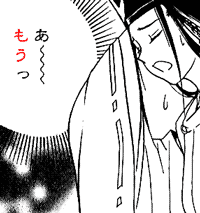
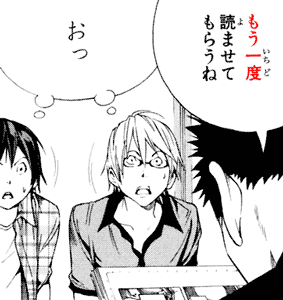

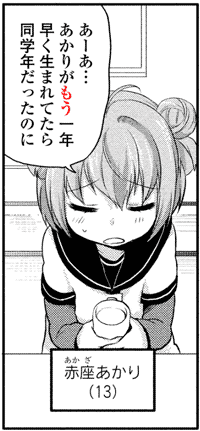
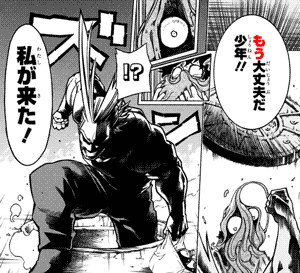
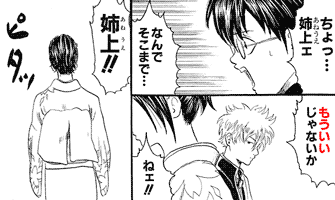
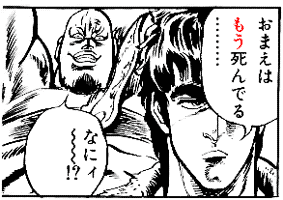
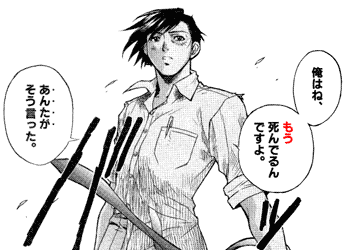
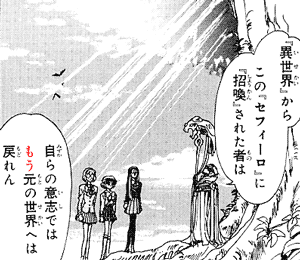
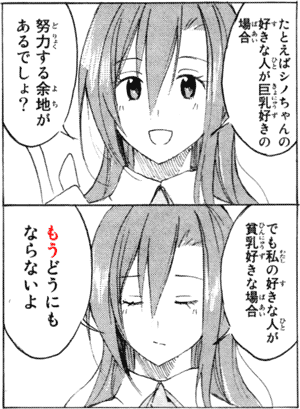
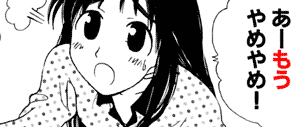
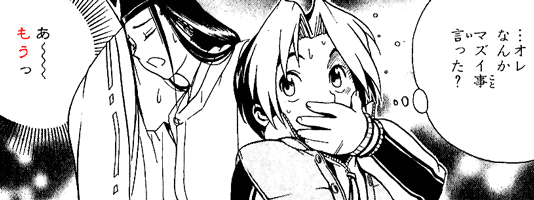
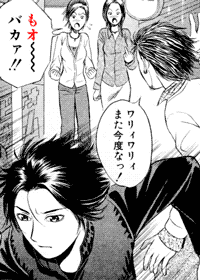
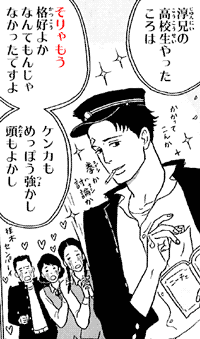
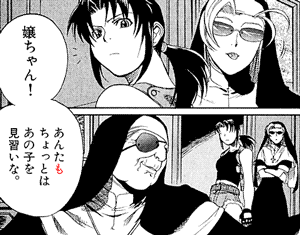
No comments: